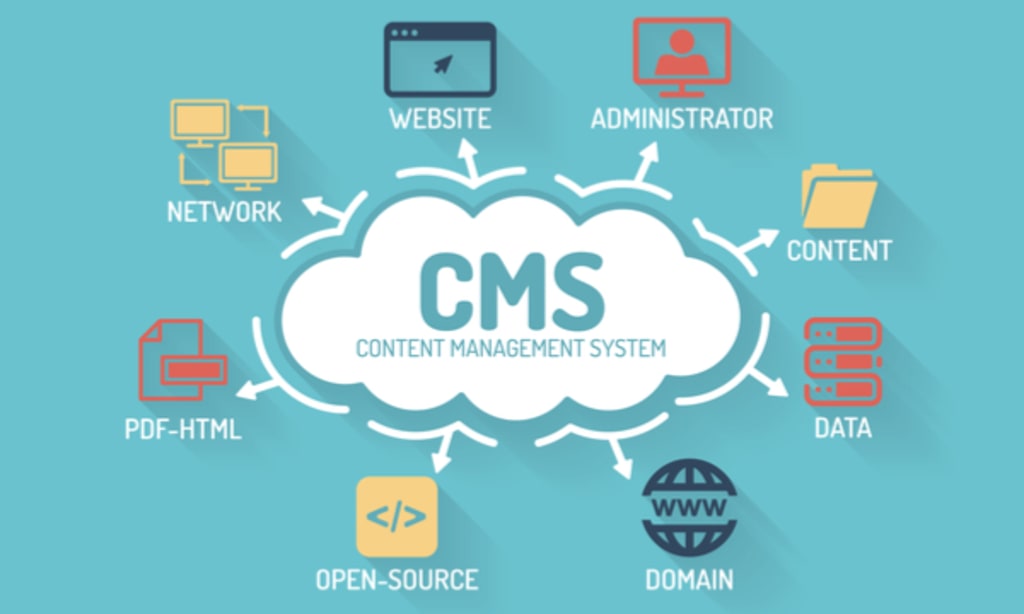Caught in The CMS Soup? We’ll Help You Pick One That’s Just Right
In today’s times, a consistent content strategy will help your business stay afloat. So why not pick a CMS that streamlines your workflow and boosts sales?

Do you know the first rule of grocery shopping? If you intend to save money, never go shopping when you’re hungry. And always, always keep a list of things ready. If you go shopping hungry, chances are, you’ll end up buying more than you need. Stuff you wouldn’t normally eat.
Why are we telling you this? Because the same rule applies to choosing a content management system as well.
Image: https://unsplash.com/photos/sSPzmL7fpWc
When you have a clear outline of the things you’re looking for, you wouldn’t feel attracted to fancy features that you have no use for. And end up buying super-expensive software that costs a thousand dollars when a simple blogging tool would have done it.
How do you go about choosing from the tons of content management system solutions out there? Although your content goals may be diverse and your business circumstances may change, here’s a list of some general principles to keep in mind before you make the big leap.
Impact and Functionality: The Two Buzzwords
So, there are two kinds of content management system services. The development platforms and the solution platforms. A development platform is basically like a clean slate, letting you build anything you want.
On the other hand, a solution platform comes with pre-built features that you can then customize according to your requirements.
When you’re about to choose a digital content management system, you need to consider the kind of impact it’ll have on your business and what your responsibilities are when choosing a platform.
Most people think content management systems mean software that lets you create, remove, and rework pages. That’s not always the case. Not all CMSs come with this kind of functionality. For instance, not all blogging platforms let you manage pages in a top-to-bottom approach.
Sometimes, like in Blogger, these pages or posts could be categorized by date or the last modified time. In some cases, this may be what you’re looking for. But if that’s not what you want, then you could end up with the wrong kind of CMS. And that can be very frustrating.
Image: https://www.blogger.com/about/?bpli=1
So before you set out to choose a CMS, fixate on what kind of functionality you are looking at and the type of structure you would want on your page. And decide accordingly.
Proprietary or Open Source?
Think content management systems were just one type? Think again. The most popular CMSs in the world are WordPress, Joomla, and Drupal. And guess what? They are all open source content management systems. This means that content on these can be easily changed and modified, based on what your business needs.
Image: https://www.drupal.org/
Also, with such a content management system (WordPress or Drupal), you can update and improve your content as and when you need to while not burning a hole in your pocket in doing so.
Image: https://wordpress.com/
And then there are proprietary CMS platforms that are mostly developed by one company. Which is to say, these are custom-built CMSs that are designed to meet the specific needs of your business. These could sometimes charge a hefty licensing fee, so check your pricing options before you go ahead with one.
So what will it be? Proprietary or open source?
‘Tis The Time For Bloggers
As a business owner or retailer, you probably know that creating content to raise brand awareness and bring in more traffic isn’t something new. For quite some time now, businesses and brands have been publishing compelling content such as articles, social media posts, and blogs to do any of these things:
II) Establishing your brand’s credibility and garnering loyalty
III) Converting prospects to leads
And despite the occasional hit ad-campaign, we all know the kind of long-term impact that consistent content creation and blogging have on your sales. The past few years have witnessed increasing popularity in diverse content such as photos, infographics, and even videos.
So if a reliable and long-term content strategy is what you’re looking for, then it’s time you make use of content management tools for blogging and reinventing your content.
The CMS software you choose should not only allow you to manage your blog easily but also let you create, edit, and publish content swiftly. Blogs form a critical part of a business’s content marketing strategy: So, content management systems that enable effortless blog posting are the best deal.
Here are some questions you can consider:
I) Does your CMS let your reader and visitors easily share things on social media and apps?
II) Does your CMS easily make space for content workflows?
III) Can non-tech-savvy people find their way around publishing and editing content on the CMS?
A Few Words of Caution
There are tons of content management system providers out there who’ll design and develop a CMS according to what you prefer. But remember - the best CMS won’t always give you everything you need instantly. Instead, it’ll let you customize and modify it as per your convenience.
So before you sit down to zero in on one, ask yourself these:
I) Is it a cloud-based content management system?
II) Can you easily customize and modify its look and feel?
III) Does your CMS vendor offer adequate documentation?
IV) And what are the total costs for support and development?
Choosing a perfect CMS for your business will be a challenging task but worth it. You have to consider several requirements, evaluate companies that offer to build you one, and then choose something that fits your budget.
About the Creator
Jessica Bennett
Jessica is an individual contributor for various leading publications. Writing about technology, design and the latest innovations is her primary knack. She also works for Unified Infotech, a technology service provider serving startups.






Comments
There are no comments for this story
Be the first to respond and start the conversation.